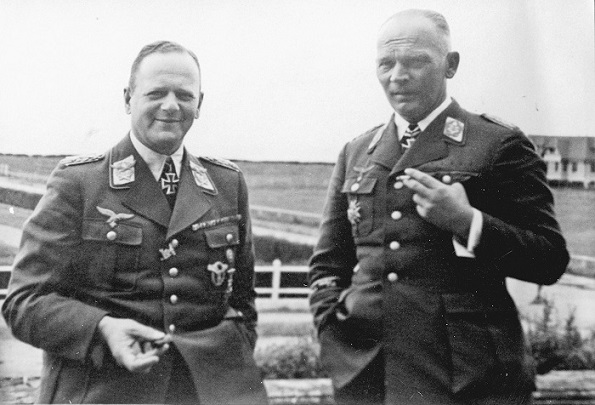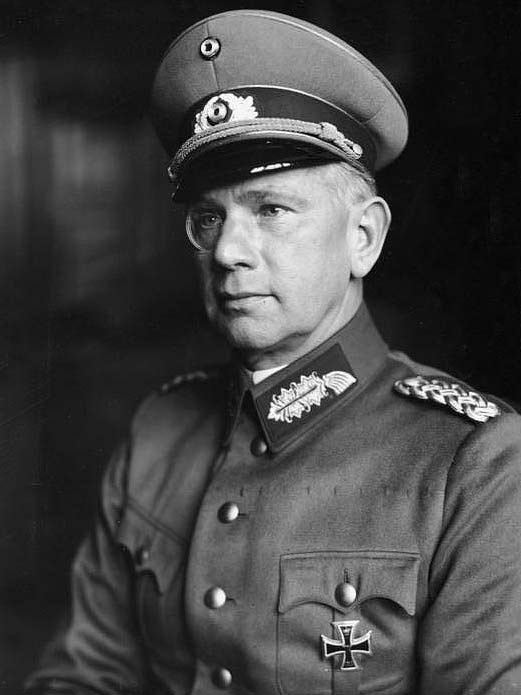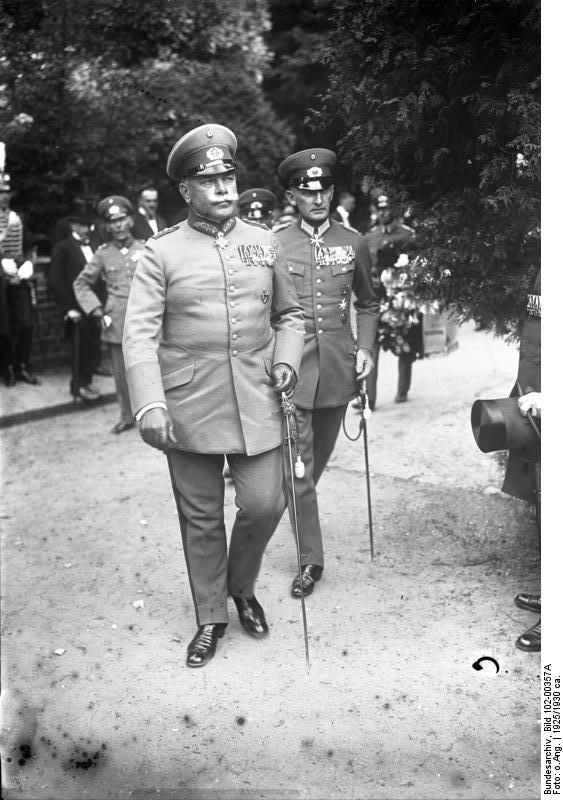|
Sieg Im Westen
''Sieg im Westen'' (''Victory in the West'') is a 1941 Nazi propaganda film. It was produced by the Oberkommando des Heeres, the German Army High Command, rather than the Ministry of Public Enlightenment and Propaganda, Propaganda Ministry of Joseph Goebbels.Robert Edwin Hertzstein, ''The War That Hitler Won'' p281 Goebbels indeed sabotaged its release in minor ways, delaying its premiere and telling propagandists not to promote it. Erwin Rommel has been described as ''enthusiastically'' helping to direct it.Exit Rommel: The Tunisian Campaign, 1942-43, page 166 Bruce Allen Watson 2007 French prisoners of war were used during its making. The prologue consists of the Nazi version of European history and the origins of World War II, and the rest deals with the Battle of France, a Blitzkrieg in the Low Countries and France (10 May – 22 June 1940). The movie was made largely from newsreel footage recut into a documentary. The programme provided states that it is to show the audac ... [...More Info...] [...Related Items...] OR: [Wikipedia] [Google] [Baidu] |
Oberkommando Des Heeres
The (; abbreviated OKH) was the Command (military formation), high command of the German Army (1935–1945), Army of Nazi Germany. It was founded in 1935 as part of Adolf Hitler's German rearmament, rearmament of Germany. OKH was ''de facto'' the most important unit within the German war planning until the Battle of Moscow, defeat at Moscow in December 1941. During World War II, OKH had the responsibility of strategic planning of Field army, Armies and Army Groups. The General Staff of the OKH managed operational matters. Each German Army also had an Army High Command ( or AOK). The Armed Forces High Command () then took over this function for theatres other than the Eastern Front (World War II), Eastern front. The OKH commander held the title of Commander-in-chief of the Army (). After the Battle of Moscow, the OKH commander Field marshal Walther von Brauchitsch was removed from office, and Hitler appointed himself as Commander-in-Chief of the Army. From 1938, OKH was, togeth ... [...More Info...] [...Related Items...] OR: [Wikipedia] [Google] [Baidu] |
Walther Von Brauchitsch
Walther Heinrich Alfred Hermann von Brauchitsch (4 October 1881 – 18 October 1948) was a German field marshal and the Commander-in-Chief (''Oberbefehlshaber'') of the German Army during World War II. Born into an aristocratic military family, he entered army service in 1901. During World War I, he served with distinction on the corps-level and division-level staff on the Western Front. After the 1933 Nazi seizure of power, Brauchitsch was put in charge of Wehrkreis I, the East Prussian military district. He borrowed immense sums of money from Adolf Hitler and became dependent on his financial help. Brauchitsch served as Commander-in-Chief of the German Army from February 1938 to December 1941. He played a key role in the Battle of France and oversaw the German invasions of Yugoslavia and Greece. For his part in the Battle of France, he became one of twelve generals promoted to field marshal. After suffering a heart attack in November 1941 and being blamed by Hitler for ... [...More Info...] [...Related Items...] OR: [Wikipedia] [Google] [Baidu] |
Wochenschau
''Die Deutsche Wochenschau'' (''The German Weekly Review'') was the title of the unified newsreel series released in the cinemas of Nazi Germany from June 1940 until the end of World War II. The coordinated newsreel production was set up as a vital instrument for the mass distribution of Nazi propaganda at war. Today the preserved ''Wochenschau'' short films make up a significant part of the audiovisual records of the Nazi era. History Newsreels had been regularly released since the early days of German cinema, especially during World War I, when companies like Messter Film started producing short silent film documentaries. With the final changeover to sound films in the early 1930s, the newsreel market concentrated on four dominating production companies: Universum Film AG (''Ufa-Tonwoche'' and '' Deulig-Tonwoche''), 20th Century Fox (''Fox Tönende Wochenschau''), Bavaria Film (''Emelka-Tonwoche''), and Tobis (''Tobis-Wochenschau''). After the Nazi ''Machtergreifung'' in 1933 ... [...More Info...] [...Related Items...] OR: [Wikipedia] [Google] [Baidu] |
List Of German Films 1933–1945
A ''list'' is any set of items in a row. List or lists may also refer to: People * List (surname) Organizations * List College, an undergraduate division of the Jewish Theological Seminary of America * SC Germania List, German rugby union club Other uses * Angle of list, the leaning to either port or starboard of a ship * List (information), an ordered collection of pieces of information ** List (abstract data type), a method to organize data in computer science * List on Sylt, previously called List, the northernmost village in Germany, on the island of Sylt * ''List'', an alternative term for ''roll'' in flight dynamics * To ''list'' a building, etc., in the UK it means to designate it a listed building that may not be altered without permission * Lists (jousting), the barriers used to designate the tournament area where medieval knights jousted * ''The Book of Lists'', an American series of books with unusual lists See also * The List (other) * Listing (di ... [...More Info...] [...Related Items...] OR: [Wikipedia] [Google] [Baidu] |
Hugo Sperrle
Wilhelm Hugo Sperrle (7 February 1885 – 2 April 1953), also known as Hugo Sperrle, was a German military aviator in World War I and a Generalfeldmarschall in the Luftwaffe during World War II. Sperrle joined the Imperial German Army in 1903. He served in the artillery upon the outbreak of World War I. In 1914 he joined the Luftstreitkräfte as an observer then trained as a pilot. Sperrle ended the war at the rank of Hauptmann (Captain) in command of an aerial reconnaissance attachment of a field army. In the inter-war period Sperrle was appointed to the General Staff in the Reichswehr, serving the Weimar Republic in the aerial warfare branch. In 1934 after Nazi Party seized power, Sperrle was promoted to Generalmajor (Brigadier General) and transferred from the army to the Luftwaffe. Sperrle was given command of the Condor Legion in November 1936 and fought with the expeditionary force in the Spanish Civil War until October 1937. Sperrle was appointed as commanding officer o ... [...More Info...] [...Related Items...] OR: [Wikipedia] [Google] [Baidu] |
Erhard Milch
Erhard Milch (30 March 1892 – 25 January 1972) was a German general field marshal (''Generalfeldmarschall'') of Jewish heritage who oversaw the development of the German air force (''Luftwaffe'') as part of the re-armament of Nazi Germany following World War I. He was State Secretary in the Reich Ministry of Aviation and Inspector General of the Air force. During most of World War II, he was in charge of all aircraft production and supply. He was convicted of war crimes and crimes against humanity during the Milch Trial, which was held before a U.S. military court in 1947, and sentenced to life imprisonment. However, Milch's sentence was commuted to 15 years in 1951. He was paroled in 1954, and died in 1972. Descendance and Jewish heritage Milch was born in Wilhelmshaven, the son of Anton Milch, a Jewish pharmacist who served in the Imperial German Navy, and Clara, née Vetter. The Gestapo would later investigate Milch due to his Jewish heritage. Under the Nuremberg Laws, Mil ... [...More Info...] [...Related Items...] OR: [Wikipedia] [Google] [Baidu] |
Albert Kesselring
Albert Kesselring (30 November 1885 – 16 July 1960) was a German '' Generalfeldmarschall'' of the Luftwaffe during World War II who was subsequently convicted of war crimes. In a military career that spanned both world wars, Kesselring became one of Nazi Germany's most highly decorated commanders, being one of only 27 soldiers awarded the Knight's Cross of the Iron Cross with Oak Leaves, Swords and Diamonds. Kesselring joined the Bavarian Army as an officer cadet in 1904 and served in the artillery branch. He completed training as a balloon observer in 1912. During World War I he served on both the Western and Eastern fronts and was posted to the General Staff, despite not having attended the War Academy. Kesselring remained in the army after the war, but was discharged in 1933 to become head of the Department of Administration at the Reich Commissariat for Aviation, where he became involved in the re-establishment of the German aviation industry and the laying of the ... [...More Info...] [...Related Items...] OR: [Wikipedia] [Google] [Baidu] |
Walter Von Reichenau
Walter Karl Ernst August von Reichenau (8 October 1884 – 17 January 1942) was a Generalfeldmarschall, field marshal in the Wehrmacht of Nazi Germany during World War II. Reichenau commanded the 6th Army (Wehrmacht), 6th Army, during the invasions of Battle of Belgium, Belgium and Battle of France, France. During Operation Barbarossa, the invasion of the Soviet Union, he continued to command the 6th Army as part of Army Group South as it captured Ukraine and advanced deep into Russia. While in command of the 6th Army during Operation Barbarossa in 1941, he issued the notorious Severity Order which encouraged German soldiers to murder Jewish civilians on the Eastern Front. Reichenau's troops cooperated with the Schutzstaffel, SS ''Einsatzgruppen'' in the commission of the massacre of over 33,000 Jews at Babi Yar, and assisted with other crimes against humanity that occurred in areas under his command during the Holocaust. Early life and service The son of Prussian Lieutenant gen ... [...More Info...] [...Related Items...] OR: [Wikipedia] [Google] [Baidu] |
Erwin Von Witzleben
Job Wilhelm Georg Erdmann Erwin von Witzleben (4 December 1881 – 8 August 1944) was a German field marshal in the Wehrmacht during the Second World War. A leading conspirator in the 20 July plot to assassinate Adolf Hitler, he was designated to become Commander-in-Chief of the Wehrmacht in a post-Nazi regime had the plot succeeded. Early years Erwin von Witzleben was born in Breslau (now Wrocław, Poland) in the Prussian province of Silesia, the son of Georg von Witzleben (1838–1898), a Hauptmann (captain) in the Prussian Army, and his wife, Therese née Brandenburg. The Witzleben dynasty was an ''Uradel'' family of old nobility and many officers, descending from Witzleben in Thuringia. He completed the Prussian Cadet Corps program at Liegnitz Ritter-Akademie, Prussian Silesia and in Lichterfelde near Berlin, and on 22 June 1901 joined the Grenadier Regiment ''König Wilhelm I'' No. 7 in Liegnitz, Silesia (now Legnica, Poland) as a Leutnant (lieutenant). In 1910, he was pr ... [...More Info...] [...Related Items...] OR: [Wikipedia] [Google] [Baidu] |
Günther Von Kluge
Günther Adolf Ferdinand von Kluge (30 October 1882 – 19 August 1944) was a German field marshal during World War II who held commands on both the Eastern and Western Fronts. He commanded the 4th Army of the Wehrmacht during the invasion of Poland in 1939 and the Battle of France in 1940, earning a promotion to Generalfeldmarschall. Kluge went on to command the 4th Army in Operation Barbarossa (the invasion of the Soviet Union) and the Battle for Moscow in 1941. Amid the crisis of the Soviet counter-offensive in December 1941, Kluge was promoted to command Army Group Centre replacing Field Marshal Fedor von Bock. Several members of the German military resistance to Adolf Hitler served on his staff, including Henning von Tresckow. Kluge was aware of the plotters' activities but refused to offer his support unless Hitler was killed. His command on the Eastern Front lasted until October 1943 when Kluge was badly injured in a car accident. Following a lengthy recuperation, K ... [...More Info...] [...Related Items...] OR: [Wikipedia] [Google] [Baidu] |
Wilhelm List
Wilhelm List (14 May 1880 – 17 August 1971) was a German field marshal during World War II who was convicted of war crimes by a US Army tribunal after the war. List commanded the 14th Army in the invasion of Poland and the 12th Army in the invasions of France, Yugoslavia and Greece. In 1941 he commanded the German forces in Southeast Europe responsible for the occupation of Greece and Yugoslavia. In July 1942 during Case Blue, the German summer offensive in Southern Russia, he was appointed commander of Army Group A, responsible for the main thrust towards the Caucasus and Baku. Following the war, List was charged with war crimes and crimes against humanity and stood trial in the Hostages Trial of 1947. He was convicted and sentenced to life imprisonment. List was released early for poor health and died in 1971. Early years List, born in Oberkirchberg in Württemberg in 1880, entered the Bavarian Army in 1898; in 1913 he joined the Bavarian General Staff. He served as ... [...More Info...] [...Related Items...] OR: [Wikipedia] [Google] [Baidu] |
Wilhelm Von Leeb
Wilhelm Josef Franz Ritter von Leeb (5 September 1876 – 29 April 1956) was a German field marshal and war criminal in World War II. Leeb was a highly decorated officer in World War I and was awarded the Military Order of Max Joseph which granted him the title of nobility. During the Battle of France, he commanded Army Group C, responsible for the breakthrough of the Maginot Line. During Operation Barbarossa—the invasion of the Soviet Union—Leeb commanded Army Group North, which advanced through the Baltic States towards Leningrad (present day St. Petersburg), eventually laying siege to the city. Units under Leeb’s command committed war crimes against the civilian population and closely cooperated with the SS ''Einsatzgruppen'', death squads primarily tasked with the murder of the Jewish population as part of the Holocaust. Leeb was a beneficiary of Adolf Hitler's bribery scheme for senior Wehrmacht officers, receiving secret, extra-legal gifts of 250,000 Reichsmark ... [...More Info...] [...Related Items...] OR: [Wikipedia] [Google] [Baidu] |








